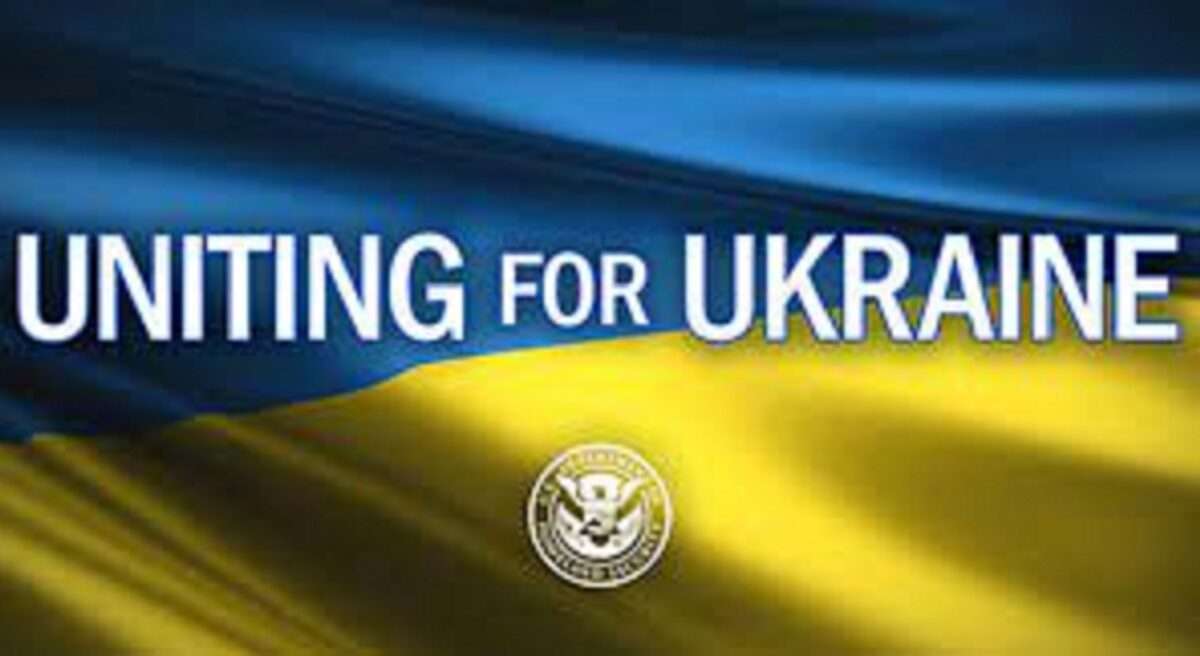Biden Administration Lets Migrants Who Entered Under Uniting for Ukraine Apply to Stay in the US For Another Two Years

![]()
Since April 2022, the US has admitted some 200,000 or more Ukrainian migrants under the Uniting for Ukraine (U4U) program, which enables US citizens and legal residents to sponsor Ukrainians fleeing Russia's brutal invasion to live and work in the United States for up to two years (I am myself a sponsor for two Ukrainian families). Although the program has many virtues and has been highly successful, the two-year time limit has been a major downside, from the beginning. Many of the Ukrainians will need a permanent refuge. And giving it to them will also enable them to contribute more to our economy and society.
Yesterday, the Biden Administration began a program under which U4U participants can apply for "re-parole." Those whose applications are accepted would be allowed to live and work legally in the US for an additional two years.
This is a step in the right direction. The war in Ukraine shows little sign of ending anytime soon. And many of the refugees may be unwilling or unable to return even after the fighting stops (e.g.—because their former homes have been destroyed by the Russian military). Past refugee crises show that it is often impossible and undesirable to force everyone to return to their original homes, even after the fighting is over.
But the re-parole process does have some downsides. One is that the relevant forms and application process seem unduly complicated, and some aspects of the system are unclear. For example, I cannot figure out whether the two-year extension is tacked on to the end of the original two years, or whether it begins as soon as USCIS accepts an application (in the latter case participants may end up with less than four years total). The filing fees are also hard to determine, though they seem to be $575 per person, if I understand the USCIS website correctly. That goes well beyond any plausible administrative expenses and is a considerable burden for the many parolees who lost everything in the Russian invasion and may be employed at working-class jobs today. At the very least, the fees should be lowered.
In addition, the extension, like the original U4U program, is a matter of executive discretion. What Caesar giveth, he or his successor could taketh away—a very real danger, given the prospect of Donald Trump returning to the White House. It is not entirely clear whether the president could unilaterally strip U4U parolees of their status before their term ends. At the very least, the president could simply let the term expire and refuse to renew it.
Despite such limitations, the re-parole system is a useful step. Otherwise, many U4U participants will see their residency and work rights expire in 2024 or 2025. But, like the earlier grant of a right to apply for TPS status, this is not a substitute for giving Ukrainians permanent residency rights. Congress must pass an adjustment act to do that; I outlined the case for doing so here. There is in fact a bipartisan Ukrainian Adjustment Act proposed by several members of Congress. But it doesn't seem likely to pass this year. Similar adjustment acts should be adopted to cover Afghans, Venezuelans, and others in similar straits, who fled war and oppression, entered the US through the use of presidential parole power, and now face arbitrary time limits on their residency and work rights.
If you are a U4U participant or a sponsor who needs help with the re-parole process, please let me know and I will see if I can get answers to your questions.
I have made inquiries with government officials and other experts to try to clear up some of the uncertainties noted above. If I learn anything useful, I will update this post.
The post Biden Administration Lets Migrants Who Entered Under Uniting for Ukraine Apply to Stay in the US For Another Two Years appeared first on Reason.com.


